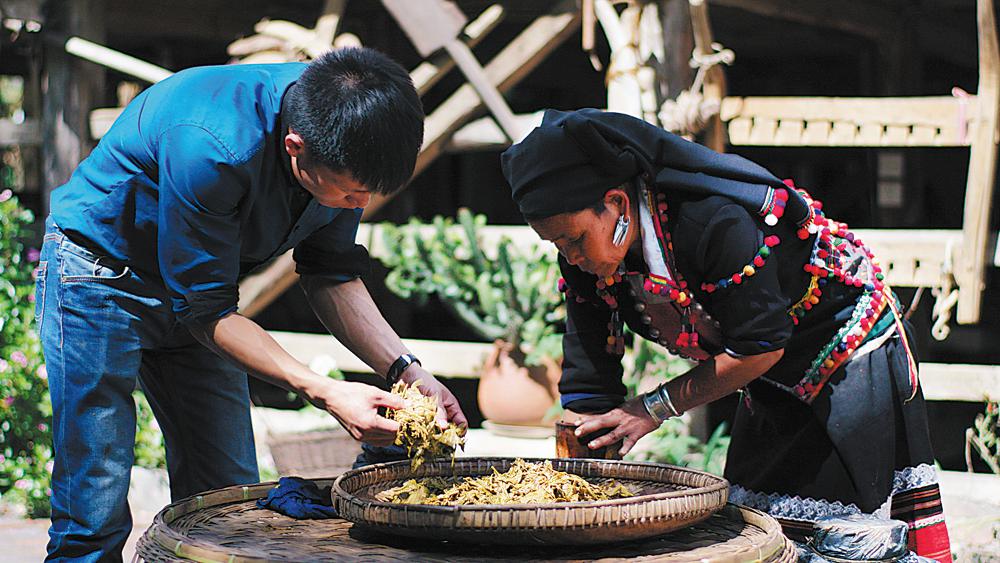
Li Qiang, keeper of a 120-year-old teahouse in Chengdu, Southwest China's Sichuan province, treats his work place like a home. For regulars who passed away, he still reserves a seat, with a lit cigarette and a cup of tea on the table, marking his "own way to say goodbye".
A bustling place filled with smoky tea pots and chatty customers, Li's teahouse is a place of heartwarming tales. With various placements of tea sets, people can skip language to convey their meanings. For instance, when the lid is tilted on the saucer, it is a request for topping up the water. If the lid is kept vertically next to the tea cup, it is a shy euphemism meaning the customer has forgotten to bring his wallet and will pay the next time.
Chinese streaming platform Migu Video is now showing the BBC documentary, One Cup, A Thousand Stories, which features Li's teahouse. The six-episode documentary was filmed for three years in 13 countries across six continents, giving the audience a chance to examine tea's influence on daily life in different places, as well as revealing the plantations and picking techniques.
"Tea is China's great gift to humanity. We wanted to look at how tea and tea culture developed in China and spread across the world, transforming culture wherever it took root," says Matthew Springford, the documentary's executive producer.
One episode follows a 75-year-old entrepreneur's return to seek his roots in the Tibet autonomous region from the United States, revisiting sites along the Tea Horse Road, an old network of caravan paths winding through the mountainous areas in Sichuan and Yunnan provinces and Tibet. With Chinese tea's plantation history going back thousands of years, some ancient myths and legends are also told. These are rarely heard by young Chinese today.
As the first story in the documentary, a local expert from the De'ang ethnic group, most members of which live in Yunnan, recounts a myth. It says that 102 tea leaves magically transformed into 51 capable men and 51 beautiful women, then one couple remained on land to create humankind after the other 50 pairs flew to heaven. Locals still carry on with the centuries-old technique of making suancha, a fermented sour tea, as an offering to their ancestors.
"Tea is an unsung hero. It provides calm, refreshment, community and enjoyment for billions of people across the globe. It has an influence on history and the evolution of cultures. For many people it is part of a daily ritual. We wanted to explore this rich world of tea culture and its impact on people's lives around the world," Springford says.
Other stories reflecting tea's impact include a martial artist achieving inner peace-a key element of his practice-in Mount Emei in Sichuan province; the wedding ceremony of a young couple in Malaysia where serving tea is an important way of expressing gratitude to parents; and a family in Fuzhou, Fujian province, that is dedicated to producing jasmine tea.
Tea has become more popular, with consumption increasing 25 percent in the last decade, according to the documentary, and various drinking methods are enjoyed by billions of people across the world.
The documentary is a fully funded commission to BBC Studios by Migu, the digital content subsidiary of China Mobile.
"We recognize that tea is a subject close to both Chinese and British people's hearts, since we are all committed tea drinkers with a long history of social tea drinking, so it is an ideal subject on which to collaborate," says Springford.
Tom McDonald, managing director of Factual program at BBC Studios, says the documentary was filmed during an unprecedented challenge during the COVID-19 pandemic, but it also pushed the BBC to shift its traditional working method-assigning British teams to fly across the world-to the alternative plan of seeking local talent to film most content.
扫一扫在手机上查看当前页面



 福州市科学技术局
福州市科学技术局 网站首页
网站首页 政务公开
政务公开 解读回应
解读回应 办事服务
办事服务 互动交流
互动交流 闽公网安备:
闽公网安备:


